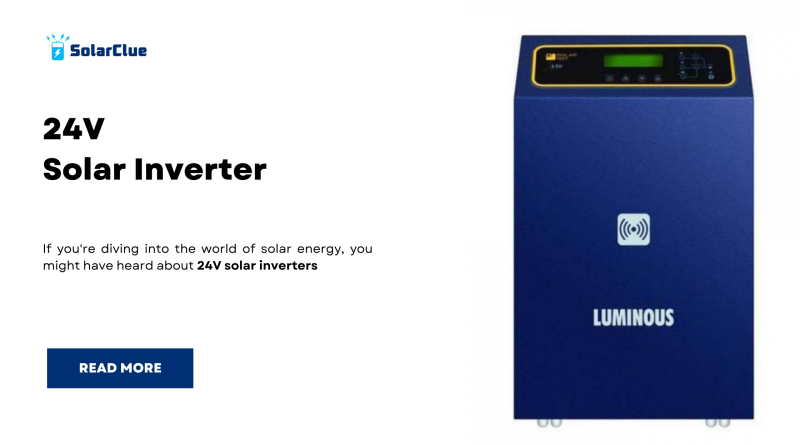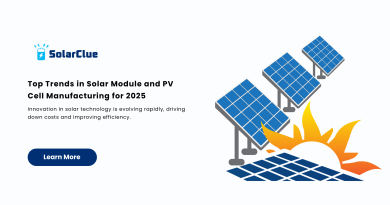24V Solar Inverter
If you’re diving into the world of solar energy, you might have heard about 24V solar inverters. You might be wondering, “What is it? How does it work? And why should I care?” Don’t worry! We’ll break it all down in a way that’s easy to understand.
Table of Contents
- 1 What is a Solar Inverter?
- 1.1 The Role of a 24V Solar Inverter
- 1.2 Why Choose a 24V System?
- 1.3 How Does a 24V Solar Inverter Work?
- 1.4 1. Solar Panels Generate Electricity
- 1.5 2. Inverter Converts DC to AC
- 1.6 3. Powering Your Devices
- 1.7 4. Storing Excess Energy
- 1.8 5. System Monitoring
- 1.9 Components of a 24V Solar Power System
- 1.10 1. Cost-Effective
- 1.11 2. Longer Lifespan
- 1.12 3. Better Performance in Low Light
- 1.13 4. Less Voltage Drop
- 1.14 1. Power Rating
- 1.15 2. Type of Inverter
- 1.16 3. Features
- 1.17 4. Brand Reputation
- 2 FAQs
What is a Solar Inverter?
Before we get into the specifics of a 24V solar inverter, let’s first talk about what a solar inverter is in general. A solar inverter is a device that converts the direct current (DC) produced by solar panels into alternating current (AC). Most of our home appliances use AC power, so this conversion is crucial.
The Role of a 24V Solar Inverter
A 24V solar inverter specifically works with a 24-volt solar power system. This kind of system is common for smaller solar setups, such as those used in RVs, boats, or remote homes. By using a 24V system, you can strike a balance between efficiency and power requirements, making it a great choice for many applications.
Why Choose a 24V System?
- Efficiency: A 24V system can be more efficient than a 12V system, especially when you have larger loads. This is because higher voltage can transmit power more efficiently over longer distances.
- Battery Size: When using a 24V inverter, you can connect fewer batteries to achieve the same power output as a 12V system. This can save space and reduce weight.
- Versatility: A 24V system can be used for various applications, from powering small appliances in an RV to providing energy in off-grid homes.
Now that we’ve covered the basics, let’s take a deeper look at how a 24V solar inverter works and what makes it special.
How Does a 24V Solar Inverter Work?
1. Solar Panels Generate Electricity
When sunlight hits your solar panels, they generate direct current (DC) electricity. This is the first step in the solar energy process.
2. Inverter Converts DC to AC
The DC electricity is then sent to the 24V inverter. Here, the inverter converts this DC power into alternating current (AC) power. This is necessary because most household appliances run on AC power.
3. Powering Your Devices
Once the electricity is converted to AC, it can be used to power your home’s appliances, lights, and other electrical devices.
4. Storing Excess Energy
If your system includes batteries, any excess energy generated can be stored for later use. This is particularly useful for nighttime or cloudy days when solar generation is low.
5. System Monitoring
Many modern inverters come with built-in monitoring features. You can track how much energy your solar panels are generating, how much is being used, and how much is stored in your batteries. This information is valuable for optimizing your solar setup.
Components of a 24V Solar Power System
To better understand how a 24V solar inverter fits into a solar power system, let’s look at its main components.
| Component | Description |
|---|---|
| Solar Panels | Convert sunlight into DC electricity. |
| Solar Charge Controller | Regulates the charging of batteries and prevents overcharging. |
| Batteries | Store excess energy for later use. |
| Inverter | Converts DC electricity to AC electricity. |
| Load | Devices or appliances powered by the solar system. |
Advantages of 24V Solar Inverters
Let’s dive deeper into why a 24V inverter might be the right choice for you:
1. Cost-Effective
While you might pay more upfront for a 24V inverter compared to a 12V system, the long-term savings can be significant. You’ll need fewer batteries, and the system can handle larger loads, which means you won’t have to upgrade your system as soon as you might with a lower voltage.
2. Longer Lifespan
Because a 24V system operates more efficiently, it can lead to less stress on your batteries and inverter. This can contribute to a longer lifespan for your equipment, saving you money on replacements.
3. Better Performance in Low Light
A 24V system tends to perform better in low-light conditions compared to a 12V system. This is especially important if you live in an area that doesn’t get a lot of sunshine.
4. Less Voltage Drop
Higher voltage systems experience less voltage drop, meaning you can run your appliances more efficiently over longer distances without losing power.
Choosing the Right 24V Solar Inverter
When selecting a 24V solar inverter, there are a few factors you’ll want to consider:
1. Power Rating
Look for an inverter that can handle the total wattage of the devices you want to power. Add up the wattage of all your appliances to ensure you choose an inverter that can manage the load.
2. Type of Inverter
There are two main types of inverters: pure sine wave and modified sine wave.
- Pure Sine Wave: These inverters provide a cleaner and more stable power output, making them ideal for sensitive electronics.
- Modified Sine Wave: These are cheaper but may not work well with all devices. They’re suitable for less sensitive appliances.
3. Features
Consider any additional features you might want, like built-in monitoring, remote access, or even Wi-Fi connectivity. These features can enhance your experience and help you manage your energy use more effectively.
4. Brand Reputation
Research brands and read reviews. A reliable inverter can make a big difference in the longevity and efficiency of your solar setup.
Common Applications for 24V Solar Inverters
24V solar inverters can be used in a variety of settings, including:
- RVs and Campers: Perfect for those who want to power appliances while on the road.
- Boats: Ideal for marine applications where space and weight are limited.
- Off-Grid Homes: Great for remote locations that aren’t connected to the power grid.
- Backup Power: Can provide a reliable source of energy during power outages.
Maintenance Tips for Your 24V Solar Inverter
Like any piece of equipment, proper maintenance can help extend the life of your solar inverter. Here are some easy tips:
- Regular Checks: Inspect your inverter for any signs of wear or damage. Look for loose wires or corrosion.
- Keep it Clean: Dust and dirt can accumulate on your inverter. Keeping it clean will help ensure it operates efficiently.
- Monitor Performance: Use any built-in monitoring features to keep track of how well your system is performing.
- Battery Care: If your system includes batteries, ensure they are charged properly and maintained according to manufacturer guidelines.
Conclusion: Harnessing the Power of the Sun
So, there you have it! A 24V solar inverter is a fantastic way to harness solar energy, whether for your RV, boat, or off-grid home. It’s efficient, cost-effective, and versatile. Plus, as we shift toward more sustainable energy solutions, investing in solar power is a step in the right direction for the environment.
Whether you’re a beginner or just looking to learn more, understanding how a 24V solar inverter works can help you make informed decisions about your energy needs. So, get out there and start exploring the amazing world of solar energy!
Visit SolarClue® to see the best Solar Inverters. SolarClue® actively sells solar energy products at discounts of up to 50% on its online marketplace.
FAQs
1. What is the main advantage of using a 24V solar inverter over a 12V inverter?
A 24V inverter is more efficient for larger loads, requires fewer batteries, and is better for longer distances without losing power.
2. Can I use a 24V inverter for my home?
Yes, if your home is set up for a 24V system, you can effectively use a 24V inverter to power your appliances.
3. Do I need special batteries for a 24V solar inverter?
Yes, you will need batteries that are compatible with a 24V system. Make sure to check the specifications.
4. How do I know what size inverter I need?
Add up the wattage of all devices you want to power simultaneously. Choose an inverter that can handle that total wattage.
5. Can I connect multiple solar panels to a 24V inverter?
Yes, you can connect multiple panels as long as their combined output is within the inverter’s capacity.


